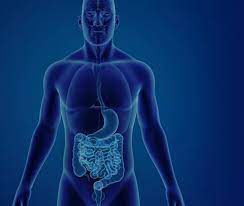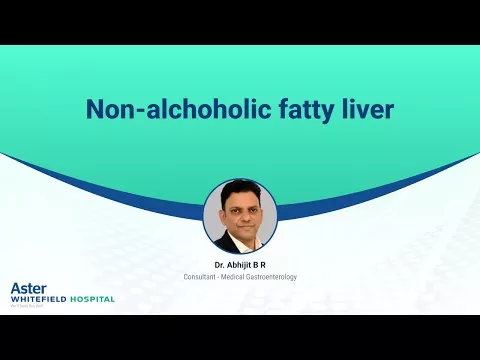Aster Whitefield Hospital is a premier destination for Gastroenterology services in Whitefield, Bangalore, offering comprehensive diagnosis and treatment for digestive disorders in both adults and children. The Centre of Excellence in Gastro Sciences provides top-tier Medical and Surgical Gastroenterology services.
The Centre operates as a fully equipped unit, featuring outpatient and inpatient facilities, a day care division, advanced diagnostic and interventional radiology, specialized surgical suites, ICUs, and round-the-clock emergency services.
With a world-class team that includes leading Medical and Surgical Gastroenterologists, Hepatologists, Transplant Surgeons, and Gastrointestinal Oncologists, Aster Whitefield ensures a multidisciplinary, evidence-based approach to treatment, supported by specialized nurses, rehabilitation therapists, and technicians. The Centre is equipped with cutting-edge technology to deliver precise diagnosis, effective treatments, and the best patient outcomes.
The hospital emphasizes a personalized approach, tailoring treatments to meet the unique needs of each patient. Equipped with state-of-the-art diagnostic tools and cutting-edge medical technology, the department ensures accurate diagnosis and effective treatment. Key procedures offered include:
- Endoscopy: A minimally invasive method to assess the upper GI tract.
- Colonoscopy: A detailed examination of the large intestine.
- Liver Disease Management: Care for conditions like hepatitis, cirrhosis, and fatty liver disease.
- Pancreatitis Treatment: Comprehensive management for acute and chronic pancreatitis.
- Surgical Gastroenterology: Advanced surgical procedures for conditions such as gallbladder disease, colon cancer, and gastroesophageal reflux.
Why Choose Aster Whitefield for Gastroscience?
Here’s an expanded version of the points, providing more detail specific to Gastroscience services at Aster Whitefield Hospital:
Experienced Team: The department boasts a highly skilled team of gastroenterologists with years of expertise in managing a wide range of digestive disorders. The team includes specialists in hepatology, endoscopy, and surgical gastroenterology, all collaborating to provide a multidisciplinary approach to patient care. They are adept at handling complex cases of liver disease, pancreatitis, gastrointestinal cancers, and advanced endoscopic procedures. With ongoing training and research involvement, the team remains at the forefront of gastroenterological care.
- Advanced Technology: Aster Whitefield Hospital is equipped with the latest medical technology to ensure accurate diagnosis and effective treatment. The hospital uses high-definition endoscopes for precise visualizations, ensuring early detection of gastrointestinal issues. Other next gen technologies include ERCP (Endoscopic Retrograde Cholangiopancreatography) for bile duct and pancreatic diseases, and Endoscopic Ultrasound (EUS) for evaluating conditions like pancreatic cysts and staging GI cancers. These advanced tools minimize the need for invasive surgeries, allowing for more comfortable and faster recovery times.
- Comprehensive Services: The gastroscience department offers a full spectrum of services, ranging from diagnostics to therapeutic and surgical interventions. Patients can access screening colonoscopies, liver function assessments, and management of conditions like GERD (Gastroesophageal Reflux Disease), Crohn's disease, and ulcerative colitis. For more severe conditions, such as gastrointestinal cancers or advanced liver disease, the hospital provides expert surgical interventions, including minimally invasive laparoscopic surgeries and liver transplants, ensuring holistic and integrated care.
- Patient Comfort: At Aster Whitefield Hospital, patient care goes beyond medical treatment. The hospital prioritizes patient comfort by offering a soothing environment, compassionate care, and clear communication at every step of the treatment process. The hospital’s patient-centric approach ensures minimal discomfort during procedures like endoscopies and colonoscopies, while providing support throughout recovery. Additionally, personalized post-treatment care plans are developed to ensure long-term health and wellness, giving patients peace of mind.
This detailed approach ensures that patients receive world-class care, tailored to their individual needs, in a comforting and technologically advanced environment.
With a reputation for excellence in healthcare, Aster Whitefield Hospital is a trusted choice for patients with digestive health concerns. Contact the hospital today for expert gastroscience services.
Our Specialities
Through our 25+ specialities, we provide in-depth expertise in the spectrum of advance medical and surgical interventions. Our specialties are integrated to provide a seamless experience.
Our Doctors
We have some of the best specialists from around the world, they bring years of experience and offer evidence-based treatment to ensure the best care for you.
Advanced Technology & Facilities
Well equipped with the latest medical equipment, modern technology & infrastructure, Aster Hospital is one of the best hospitals in India.
The Department of Gastroenterology offers outpatient and inpatient consultations. Our Gastroenterologists perform comprehensive evaluations to diagnose various gastrointestinal disorders. assess patients' medical history, perform physical examinations, and order appropriate diagnostic tests such as laboratory tests, imaging studies (such as X-rays, ultrasounds, or CT scans), endoscopic procedures (such as upper endoscopy, colonoscopy, sigmoidoscopy, or enteroscopy), or other specialized tests to determine the underlying cause of symptoms.
Considering the factors such as the patient's overall health, medical history, and preferences; treatment options are suggested which may include lifestyle modifications, dietary changes, medications, and minimally invasive procedures. A regular follow-up is done to assess treatment response, adjust medications or therapies as needed and address any concerns or new symptoms that may arise.
Also known as Esophagogastroduodenoscopy (EGD) involves the insertion of an endoscope through the mouth for internal examination. It is commonly used to evaluate symptoms such as persistent heartburn, difficulty swallowing, nausea, vomiting, diarrhea or unexplained weight loss. It helps identify conditions like GERD, gastritis, peptic ulcers, celiac disease (gluten sensitivity), and gastrointestinal cancers.
It is primarily used for colorectal examination. It involves the insertion of an endoscope through the rectum to visualize the entire colon and rectum. It allows direct visualization and sampling of tissues (biopsies) for further analysis. This involves examining the large intestine for abnormalities like hemorrhoids (Piles), anal fissures, polyps, inflammatory bowel diseases (Ulcerative colitis, and Crohn’s), intestinal tuberculosis, cancer, etc. A colonoscopy also allows for the biopsy or removal of suspicious lesions and is a crucial tool in colon cancer screening and prevention.
It is a non-invasive procedure that involves swallowing a small capsule containing a camera to capture images of your digestive tract, particularly the small intestine. It's typically used to diagnose lesions located in the small intestine that are not accessible to conventional endoscopy. This procedure is beneficial because it does not require surgery or anesthesia, and it is a less invasive way to diagnose diseases and abnormalities of the digestive tract. Furthermore, the images captured by the camera allow for a more accurate diagnosis.
ERCP combines endoscopy with fluoroscopy to diagnose and treat disorders of the bile ducts and pancreas including bile duct stones, strictures (Narrowing), leaks, and cancer. It involves the insertion of an endoscope through the mouth, passing through the stomach and duodenum to access the bile ducts and pancreatic ducts. ERCP is used to remove obstructions and perform interventions such as stent placement or tissue sampling in cases of biliary or pancreatic diseases.
This diagnostic procedure combines endoscopy and ultrasound to obtain detailed images and information about the digestive tract and the surrounding tissue and organs. It involves the insertion of an endoscope equipped with an ultrasound probe through the mouth or rectum, providing high-resolution images of the digestive tract wall layers and surrounding structures. It is used for various indications, including diagnosing bile duct stones, bile duct strictures, chronic pancreatitis, evaluating gastrointestinal cancers, evaluating pancreatic lesions, guiding fine-needle aspirations for tissue sampling, and assisting in the placement of drainage devices. It is also used to obtain tissue biopsy from the abdomen and mediastinum(chest) for diagnosis (histological examination).
FibroScan is a valuable tool for assessing liver fibrosis, typically used in conjunction with other clinical and laboratory evaluations to provide a comprehensive assessment of liver health. The results of FibroScan, along with additional tests and patient history, help gastroenterologists and hepatologists in diagnosing liver diseases, monitoring disease progression, and determining appropriate treatment strategies.
The FibroScan procedure involves the use of a specialized ultrasound probe to measure liver stiffness. The patient lies on a table, and the probe is placed on the skin surface over the liver. The probe sends a vibration through the liver, and the resulting shear wave speed is measured. The liver stiffness is then calculated based on the speed of the shear waves, which correlates with the degree of fibrosis.
It's primarily used to assess the presence and extent of liver fibrosis, a condition often associated with hepatitis, alcoholic liver disease, fatty liver, and chronic liver diseases (cirrhosis of the liver).
It is a non-invasive, quick, convenient, and repeatable procedure that reduces the need for Liver Biopsy.
This covers a range of procedures, such as polypectomy (removal of polyps), endoscopic dilation (stretching of a narrowed area), variceal band ligation, hemostasis (stopping bleeding) for ulcer bleeds, esophageal and duodenal stenting, helping treatment of many GI disorders without the need for invasive surgery.
Therapeutic endoscopy refers to a set of minimally invasive procedures performed using a colonoscope to treat various gastrointestinal conditions. It involves interventions such as removing polyps or tumors, dilating strictures, placing stents, treating bleeding lesions, and delivering targeted therapies. Therapeutic endoscopy offers a less invasive alternative to surgery, allowing for precise and effective treatment while minimizing patient discomfort and recovery time. It plays a crucial role in managing a wide range of gastrointestinal disorders and improving patient outcomes.
Therapeutic endoscopic ultrasound (EUS) is a specialized procedure used in gastroenterology for therapeutic purposes. It combines endoscopy with ultrasound imaging to visualize and guide interventions within the gastrointestinal tract and adjacent organs. Therapeutic EUS enables the drainage of fluid collections, placement of drainage stents, injection of therapeutic agents, delivery of radiofrequency ablation for tumor treatment, and sampling of deep tissue lesions. It provides a minimally invasive approach for targeted interventions, aiding in the management of pancreaticobiliary disorders, gastrointestinal tumors, and other complex gastrointestinal conditions. We can also diagnose and treat conditions such as draining cysts, celiac plexus block for pain management in chronic pancreatitis, pancreatic cancer and place stents in the bile or pancreatic ducts, and EUS-guided gastrojejunostomy.
Recognizing the critical role of diet in gastrointestinal health, our registered dieticians provide comprehensive nutritional assessments for our patients. Nutritional assessment and counseling are essential components of our gastroenterology care. Our dieticians help in identifying malnutrition, planning appropriate dietary interventions, managing symptoms, supporting treatment and recovery, preventing complications and monitoring treatment response. By addressing nutritional needs, our dieticians optimize patient outcomes and improve the overall quality of life for individuals with gastrointestinal disorders. This involves evaluating dietary habits, understanding nutritional needs and developing personalized nutrition plans. This service is particularly beneficial for patients managing conditions such as celiac disease, irritable bowel syndrome (IBS), and inflammatory bowel disease (IBD).
Patient comfort and safety are at the core of all our services. We ensure each patient understands their procedures, addressing their concerns with compassion and respect. We're here to guide you through every step of your healthcare journey, always prioritizing your comfort, safety, and well-being. We as a department continue to evolve as new research and innovations emerge and to better understand and treat gastrointestinal disorders. With a focus on early detection, effective management, and patient education, we strive to improve the quality of life for individuals living with gastrointestinal conditions.
FAQs
Want to find out more about the treatment? The answer to your questions can be found below.
What should I bring to my appointment?
On your first visit, you should bring all your previous medical records, a list of medications (including dose), previous prescriptions if any related to the problem, an insurance card, and any valid Identity proof. You can also create a list of questions you'd like to ask during your visit. Make sure you jot down the physician's response. You should also bring cash, check, or credit/debit card to cover any visit co-payments.
When I visit a Gastroenterologist for the first time what should I expect?
Your doctor will study your files along with previous test reports to evaluate and diagnose your problem. If required the doctor may prescribe further diagnostic and blood tests for appropriate diagnosis and a plan for your medical treatment accordingly.
What problems can a gastroenterologist treat?
A gastroenterologist treats, diagnoses, and manages conditions of the gastrointestinal system as well as digestive organs. This includes everything from the esophagus and stomach to the liver, pancreas, and gallbladder.
What is fatty liver? What leads to this problem?
fatty liver is the condition of accumulation of fat in liver. It can lead to inflammation in the liver and eventually lead to a variety of health problems. The Fatty lever is generally associated with many lifestyle factors. The most common cause is obesity, as well as excess alcohol consumption, diabetes, and high cholesterol. An unhealthy diet may also play a role in the development of fatty liver, as well as certain medications and certain medical conditions.
Why do I need to see a Gastroenterologist?
If you have complaints related to the digestive system such as frequent abdominal pain, nausea, diarrhea, constipation, or heartburn for a prolonged time you might need to visit a Gastroenterologist. Also, If you are 45 years or older and have a family history of GI cancer it is advisable to seek frequent checkups from a gastroenterologist.
How can I prevent colon cancer?
To improve your health and reduce your risk of colon cancer, you can make several easy lifestyle changes, such as limiting alcohol consumption, quitting smoking, eating a balanced diet rich in fruits and vegetables, exercising regularly, and maintaining a healthy weight.
What are the first signs of liver damage from alcohol?
Alcohol abuse is linked to many health problems, including liver damage. The signs of liver damage from alcohol include elevated liver enzymes, jaundice, ascites, and swelling in the abdomen.
In more advanced stages of liver damage from alcohol, the liver can become significantly enlarged and tender. This is known as hepatomegaly. Additionally, fibrosis, or scarring of the liver, can occur and lead to cirrhosis. Cirrhosis is a condition in which the liver is permanently damaged and can no longer function properly.
What is the difference between endoscopy and colonoscopy?
A colonoscopy is a procedure that examines the entire large intestine from the rectum to the cecum. During the procedure, a doctor will look for any abnormalities, such as polyps, ulcers, or tumors. The procedure can also be used to diagnose conditions such as inflammatory bowel disease or diverticulitis.
An endoscopy, on the other hand, is a procedure that examines the entire digestive tract, including the stomach, small intestine, and large intestine. Unlike a colonoscopy, endoscopies are often used to diagnose or treat conditions of the stomach, such as ulcers, blockages, or cancers. Endoscopies can also be used to identify any problems in the small intestine, including Crohn's disease and celiac disease.
Blogs
The source of trustworthy health and medical information. Through this section, we provide research-based health information, and all that is happening in Aster Hospital.







